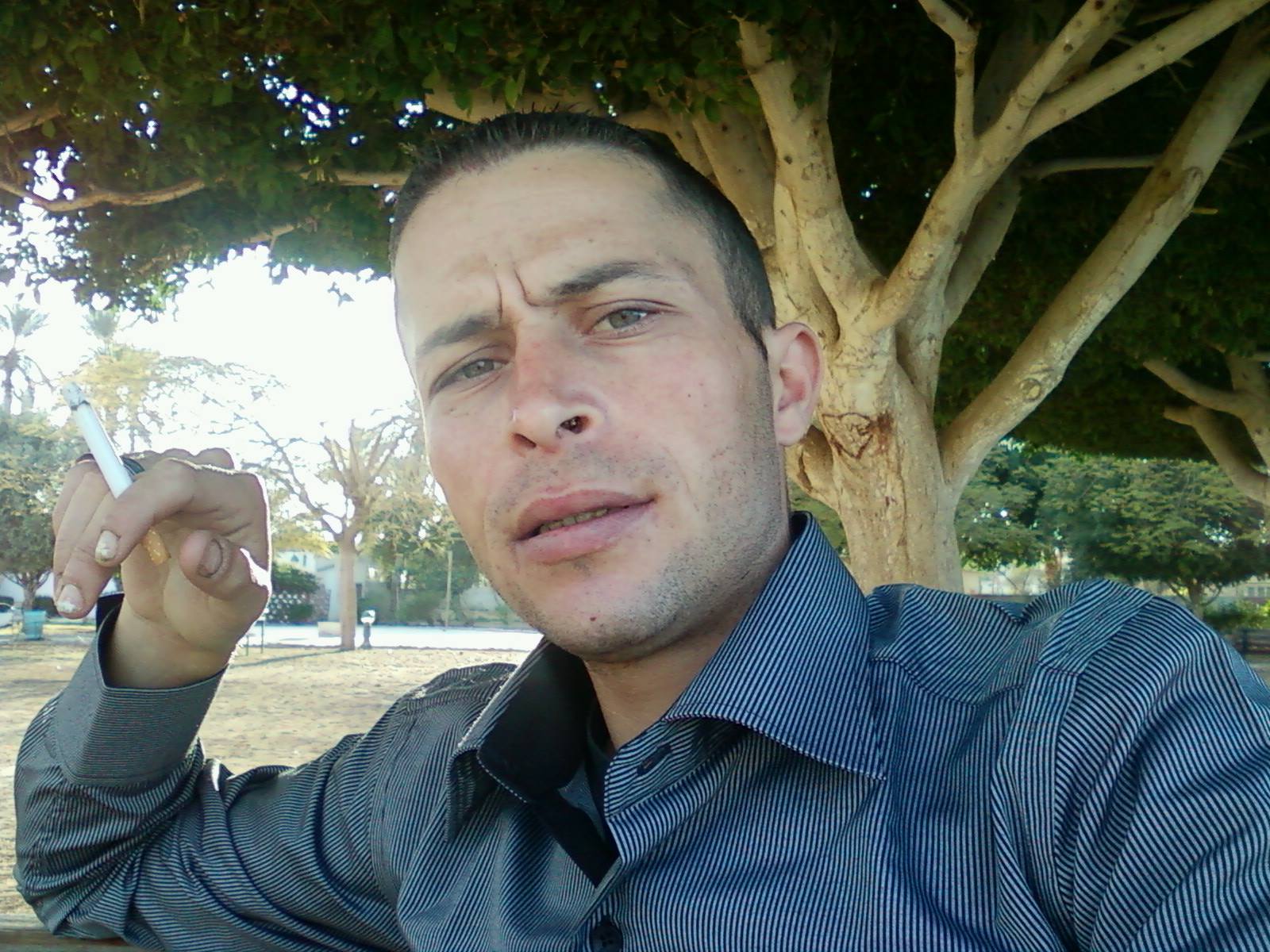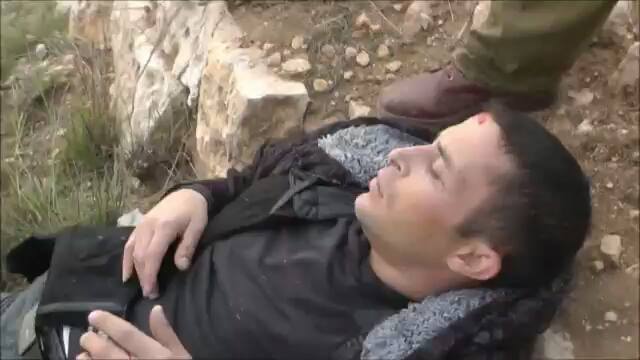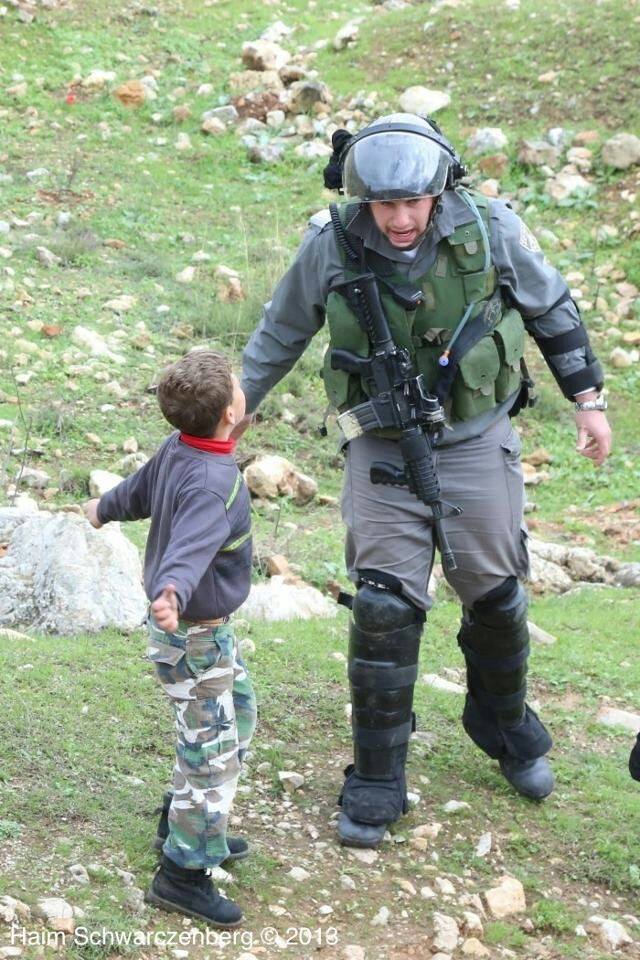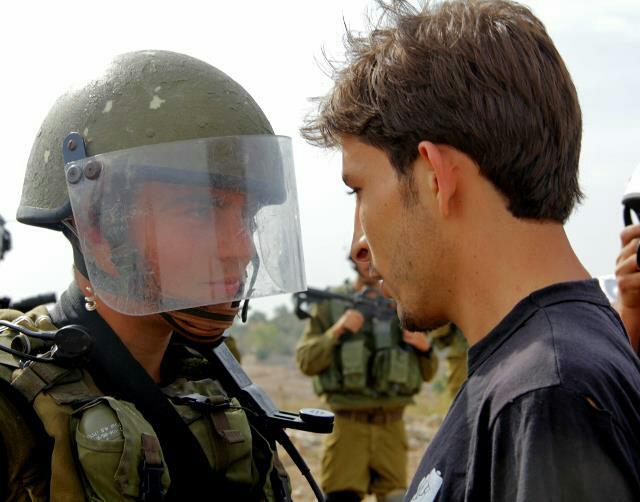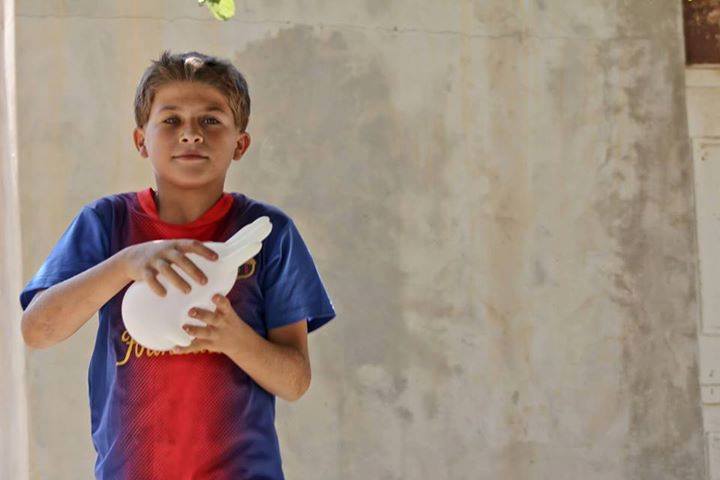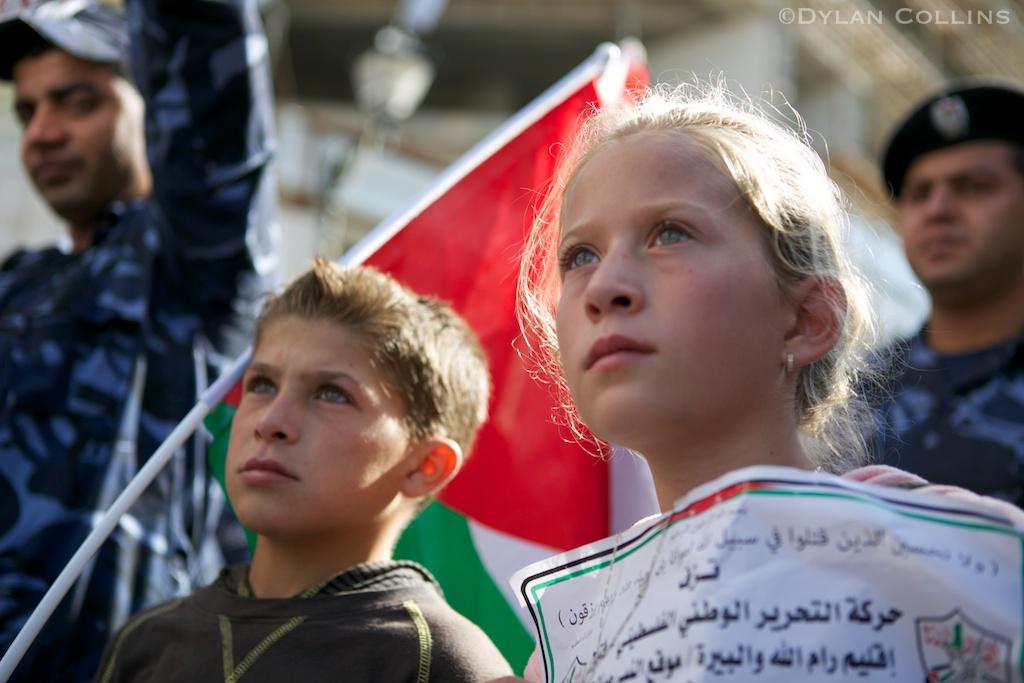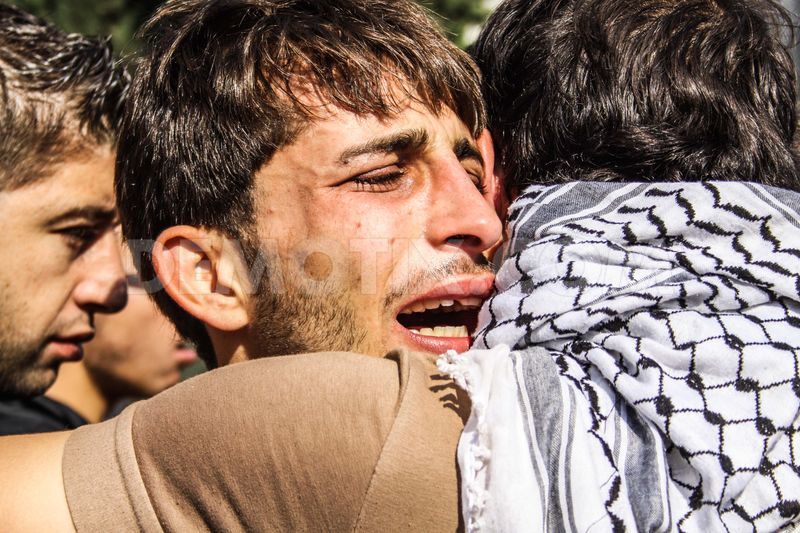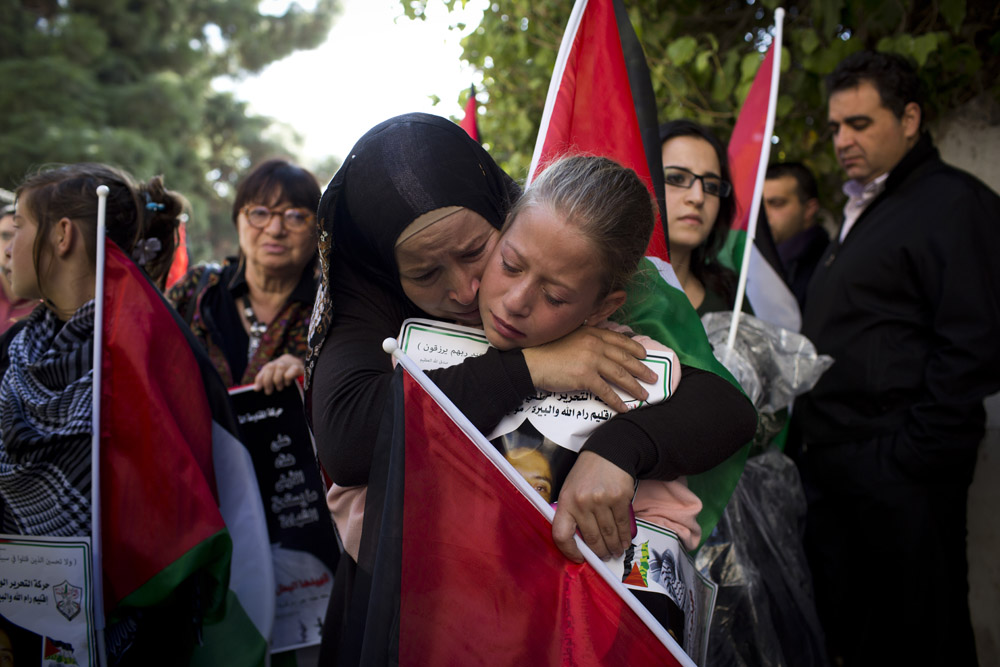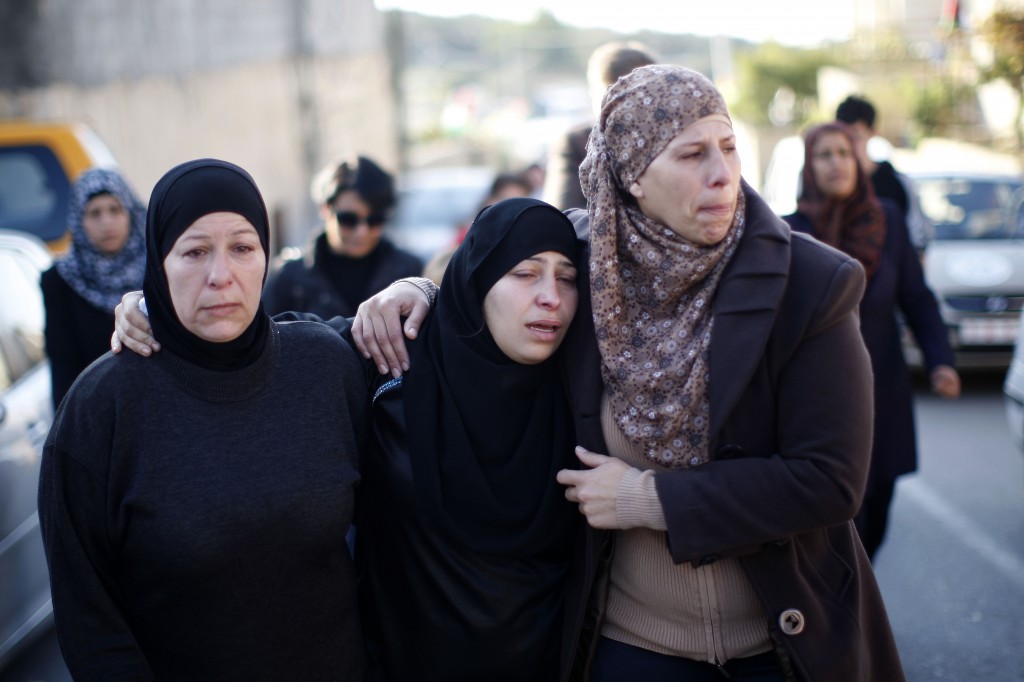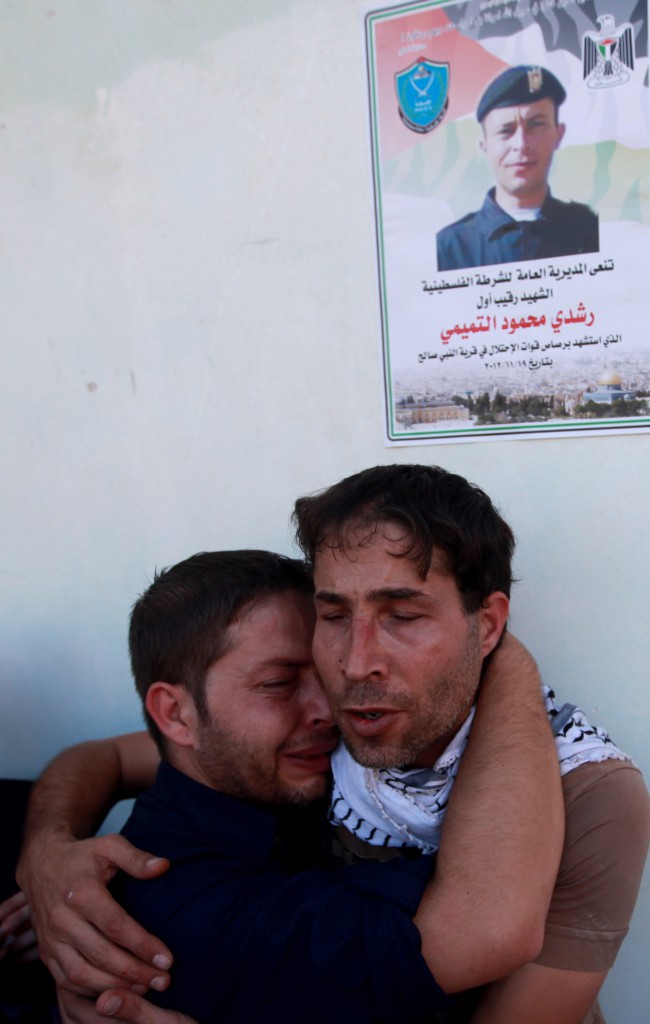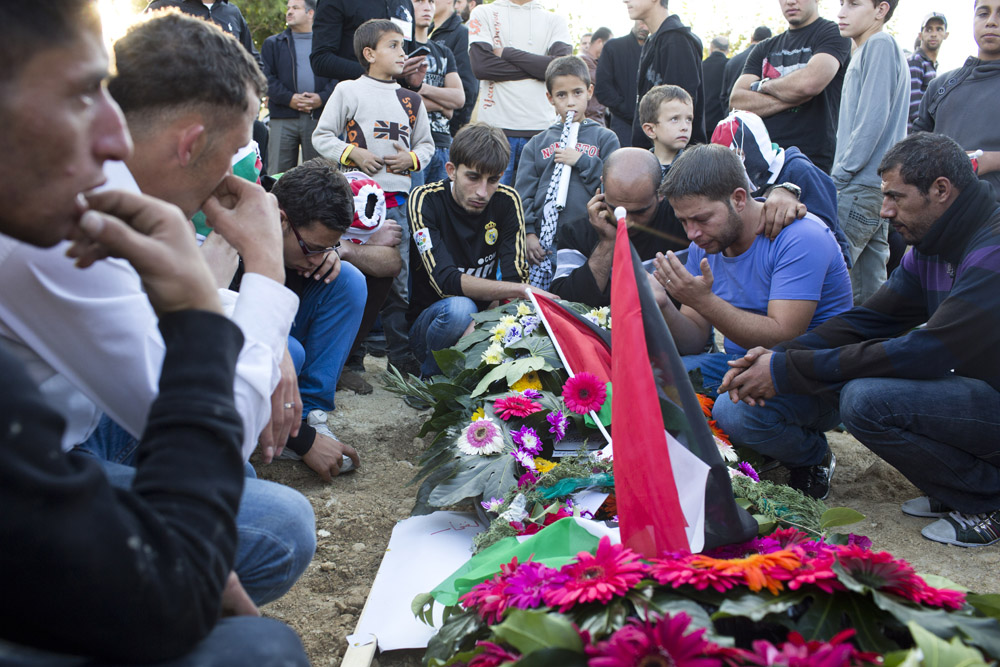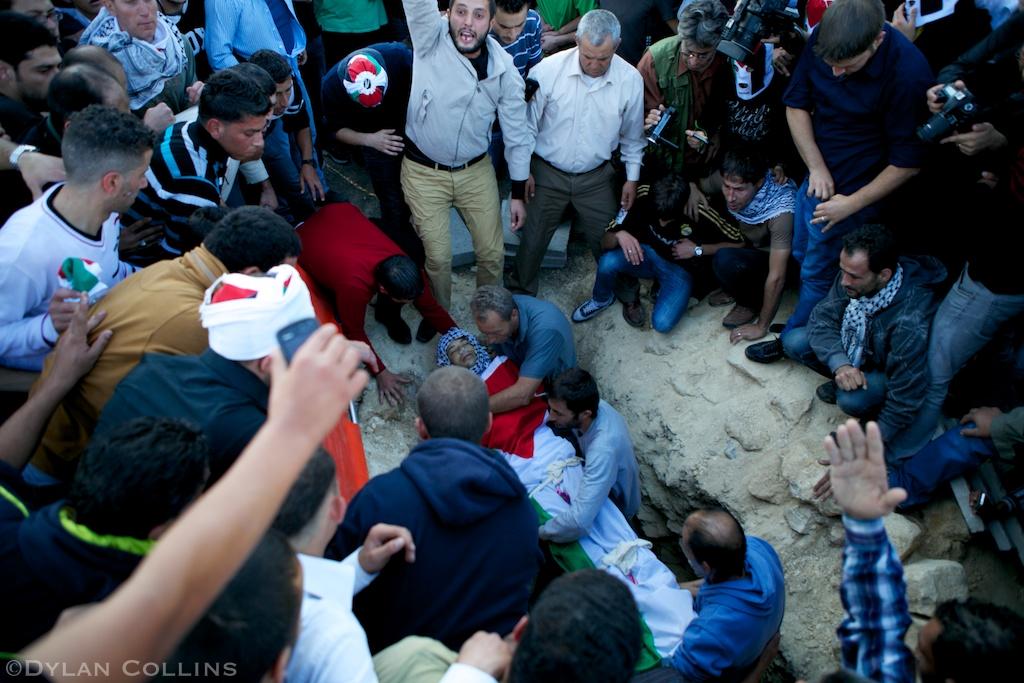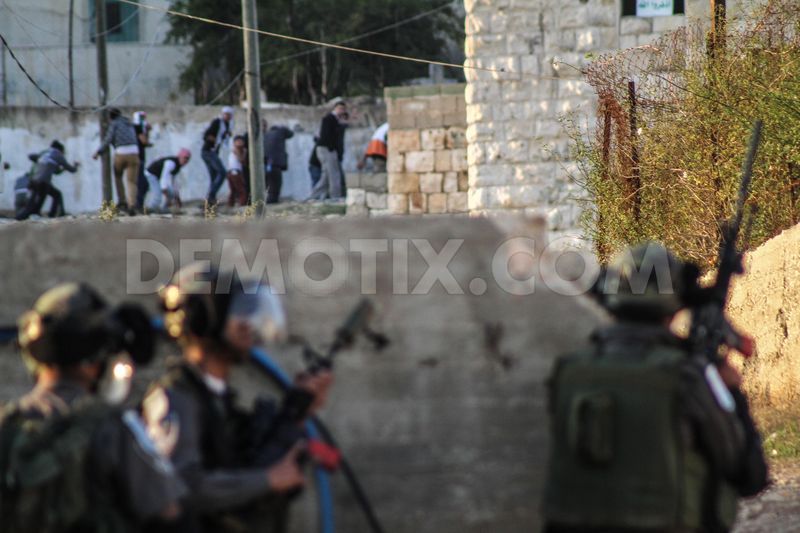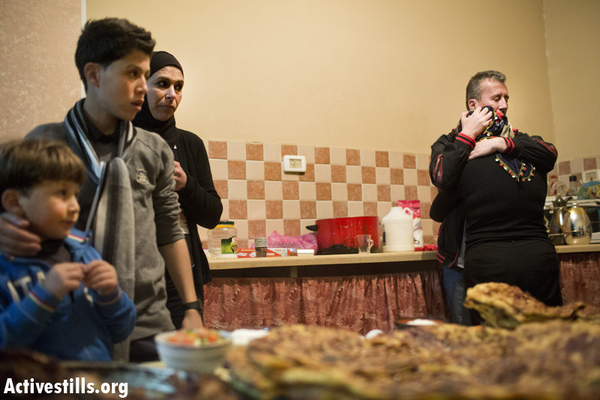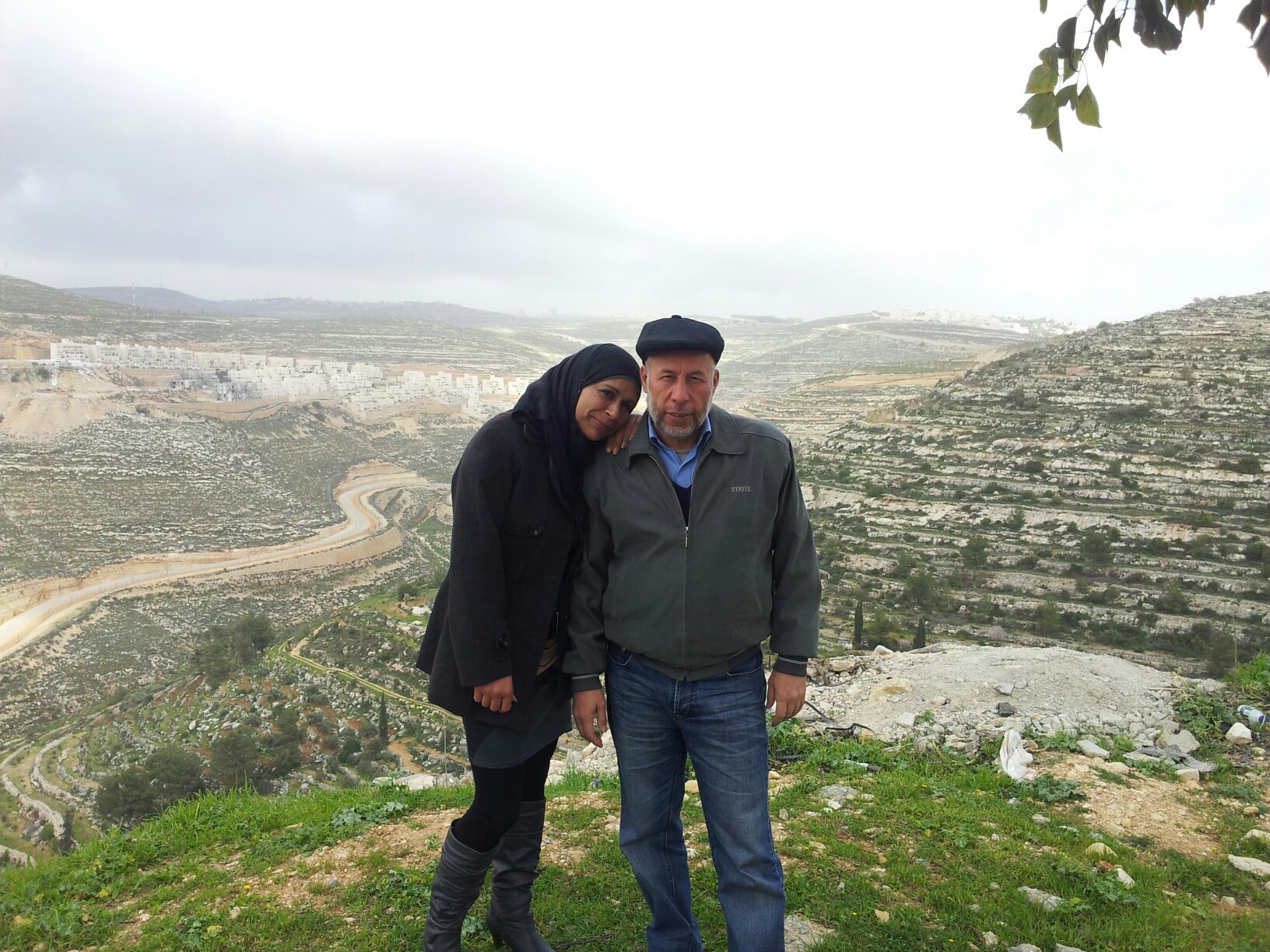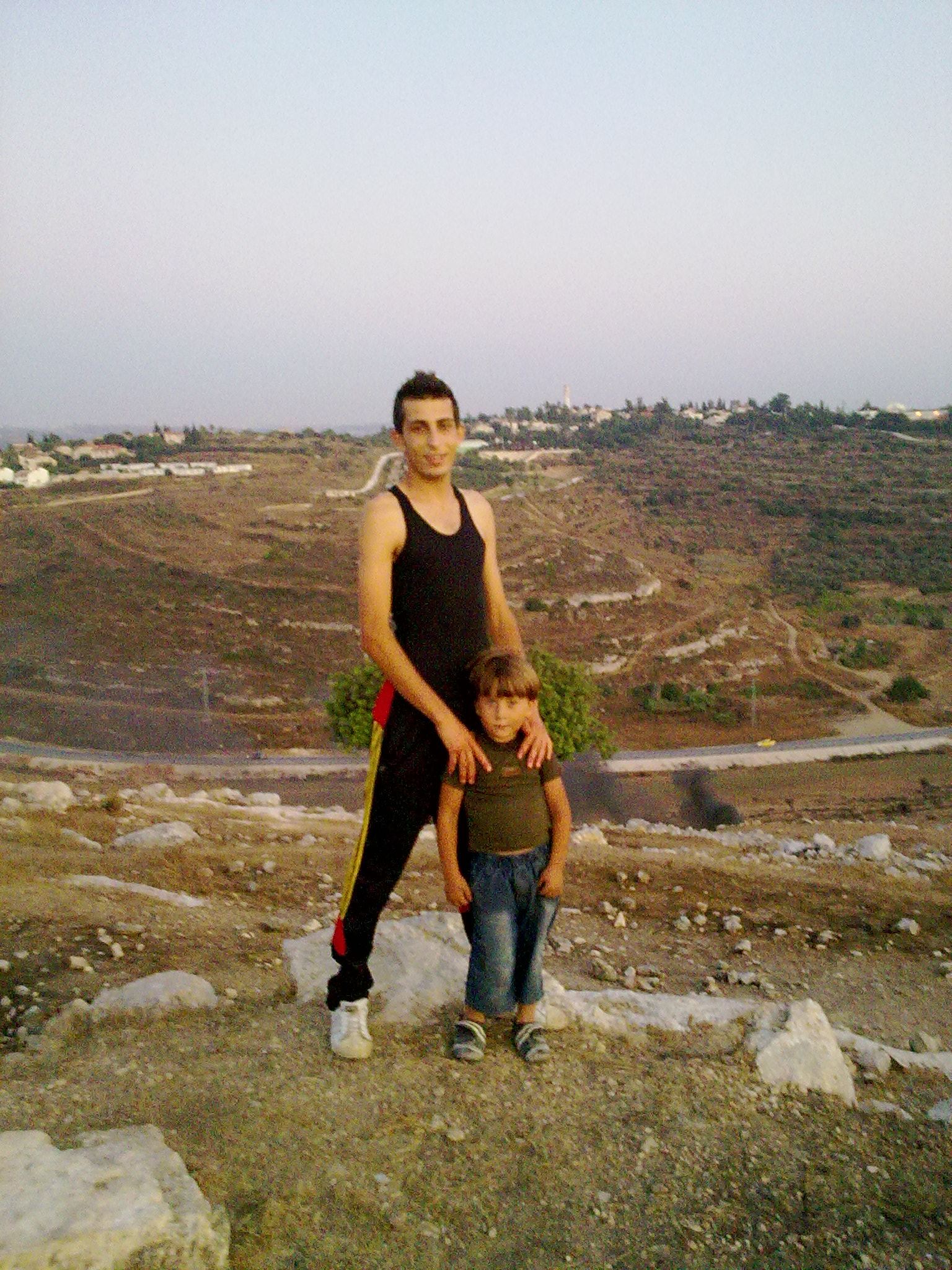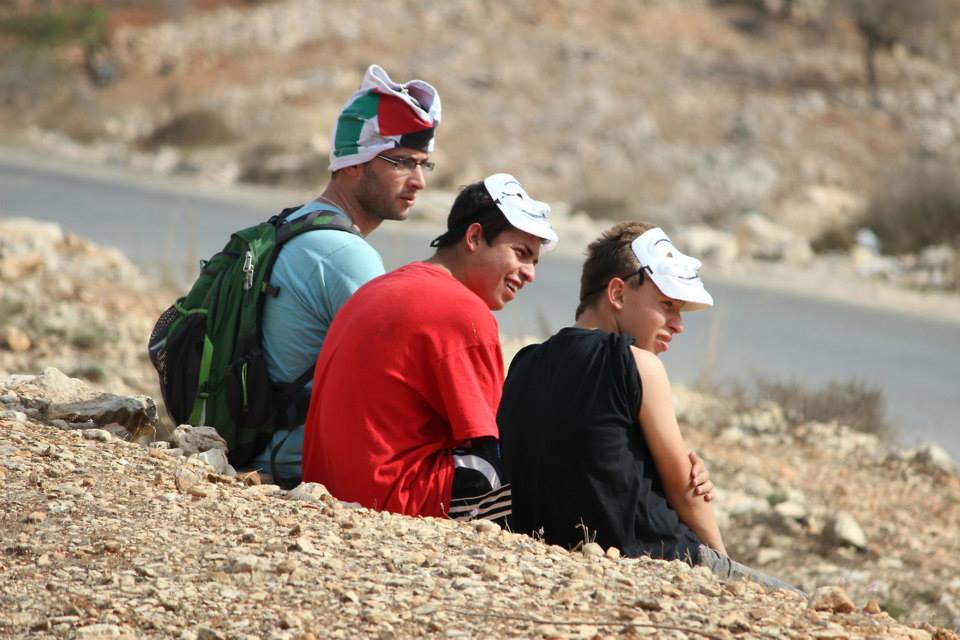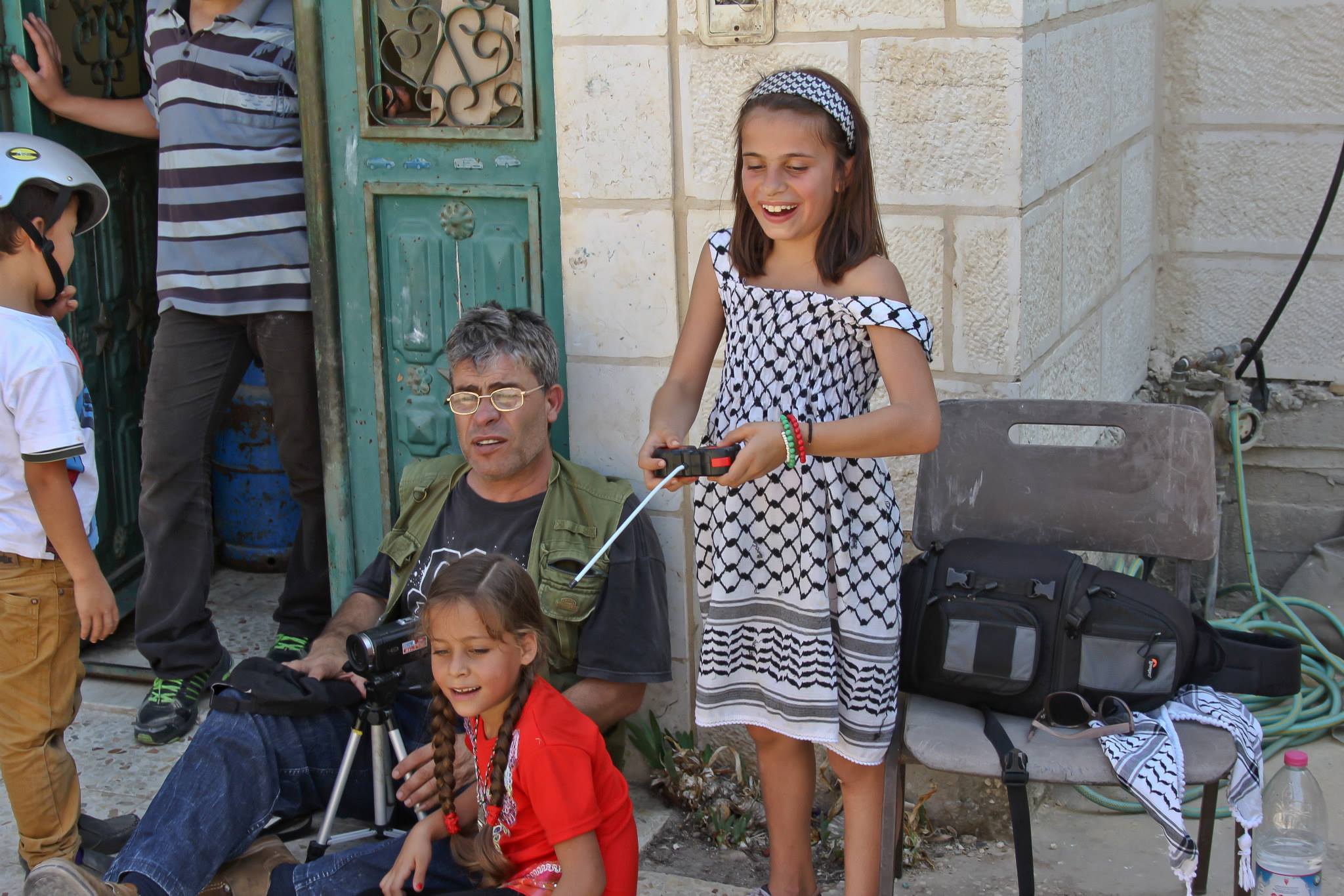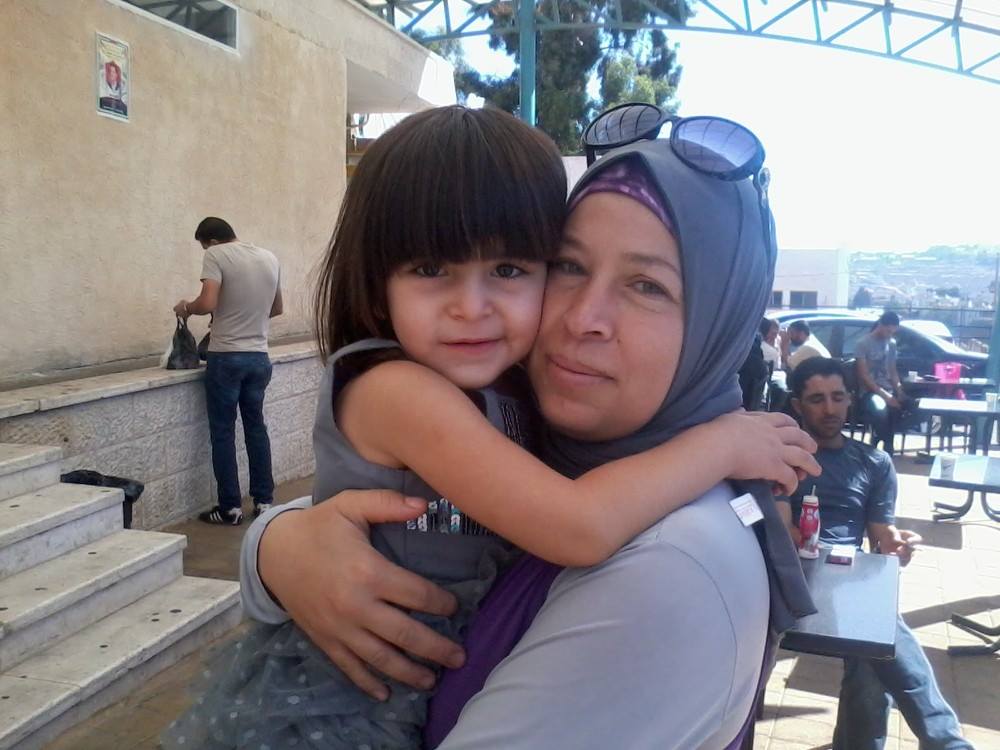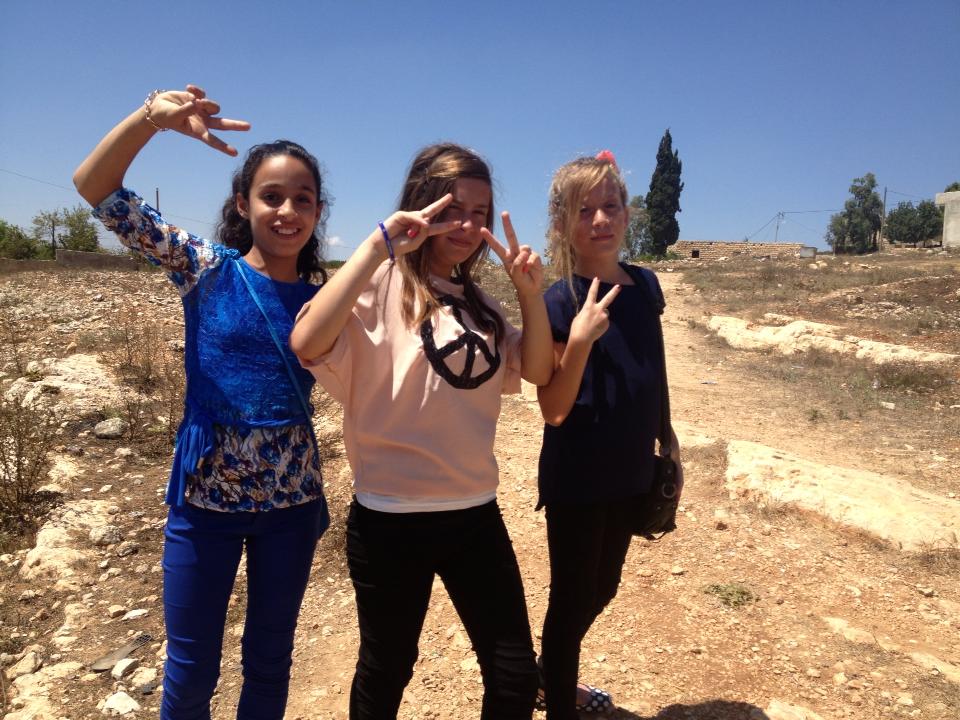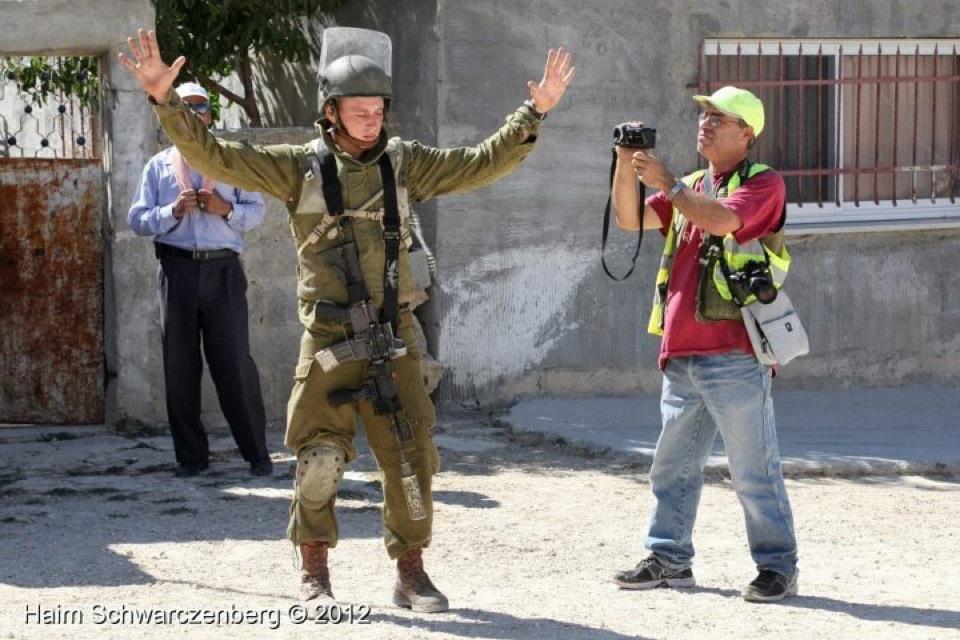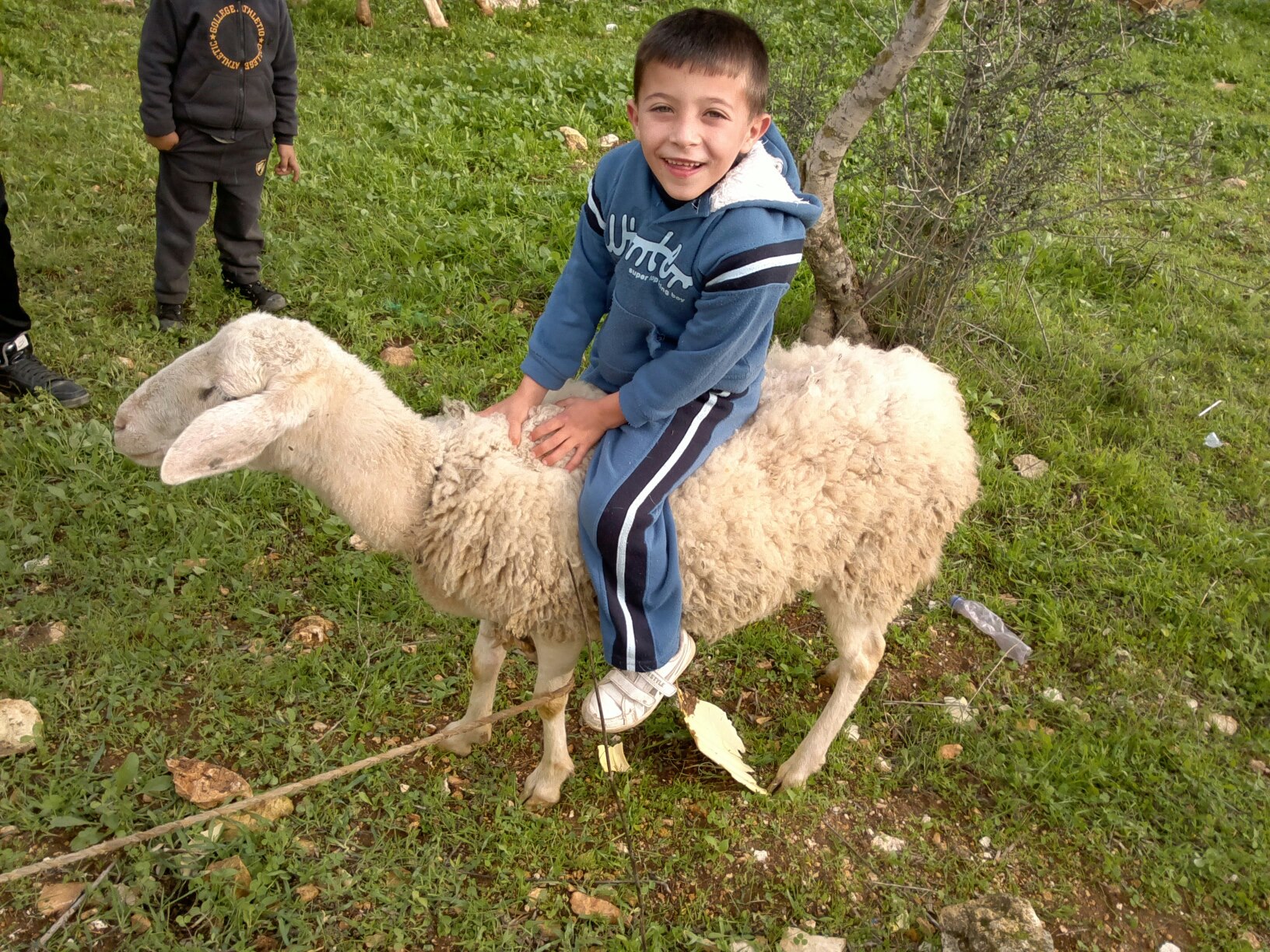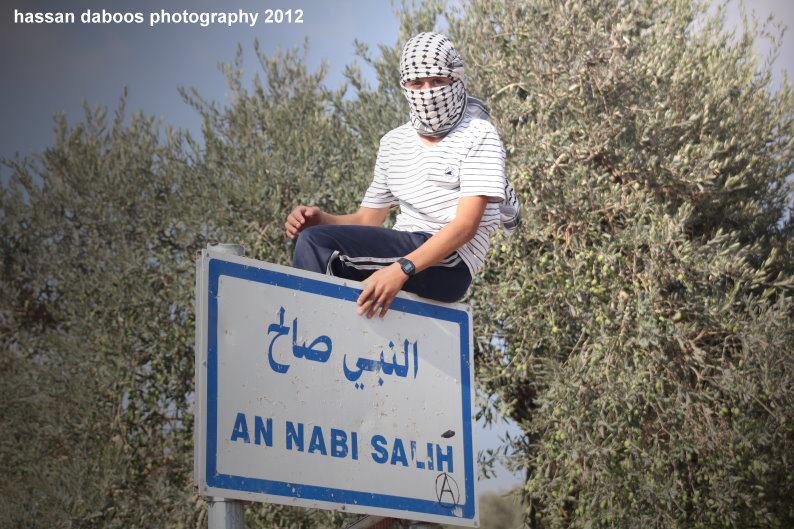it’s been a year since rushdi tamimi died on 20.11.2012 in a ramallah hospital from the bullet wound he sustained during clashes in his villages nabi saleh. it’s been a year that he is gone, that his family, his sisters and brothers and mother, his daughter, his nieces and nephews and cousins live without him, and a year on, his death still seems sudden and sometimes unreal.
saturday, 17.11.2011
rushdi was shot on a saturday. 17.11., exactly a year from today as i’m writing this. friday, the day before, had been relatively quiet (in nabi saleh standards, since the village is used to fridays with much more violence). the weekly demonstration against the ongoing colonization and theft of the village’s lands had been brief. israeli forces had attacked with tear gas and probably rubber-coated steel bullets (i don’t remember), but there had been no arrests, no injury worth mentioning.
it was the fourth day of another military offensive against the gaza strip which would last a total of eight days and kill 156 palestinians, including 33 children, in 1,350 air strikes and additional attacks from land and the sea. like every time that gaza is bombed (for more than a day) since cast lead, people were worried about how bad it would be this time. during the demonstrations on friday, there were way less soldiers present, it seemed as if most had been called away to prepare for gaza.
that week, i had been staying with nariman, rushdi’s sister and strong activist. only a month before, abu mustafa, the father of martyr mustafa tamimi, had died from a heart attack, and while until his death, i had been often sleeping at manal and bilal’s and spending the days at the house of mustafa’s family, that no longer seemed right.
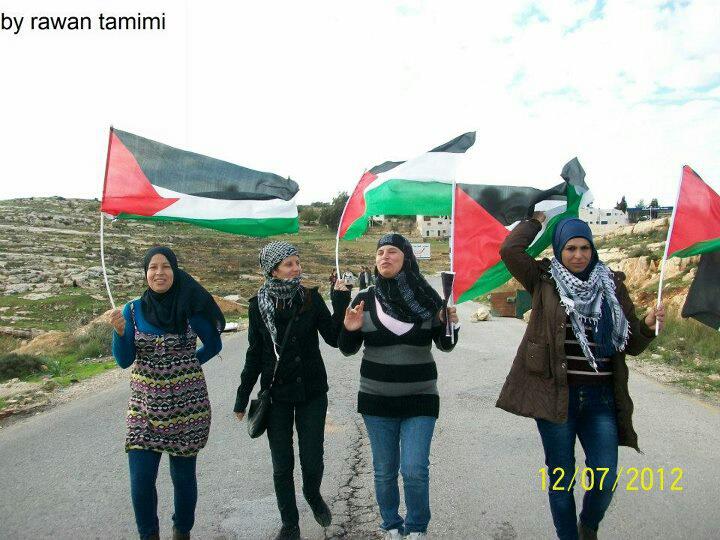
rushdi’s sister nariman, activist abir kopty, rushdi’s cousin manal and boshra (from l. to r.) at a demonstration in nabi saleh
that saturday was a lazy day. nariman was relieved that nothing had happened on friday. only three weeks earlier, her husband bassem had been arrested yet again during a protest at an illegal settler colonist supermarket – four months after he had been released from military prison where he had already spend 13 months for his activism. and although the demos in the previous weeks had been more quiet than how fridays in the village used to be only a year ago, nariman’s 16-year old son waed had been arrested two fridays earlier. her 10 year old son abu yazan and her 12 year old daughter ahed had stood in front (and on top) of the military jeep, trying to prevent the soldiers from driving off with their brother.
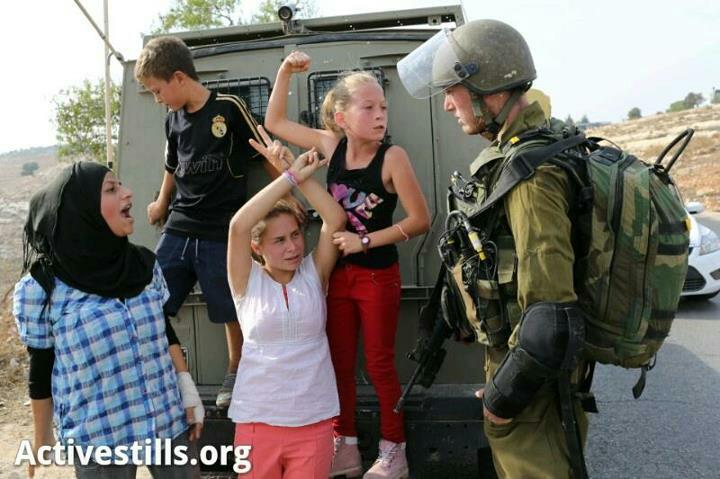
nariman’s daugter ahed(12), her cousin marah (12), her brother abu yazan (10) and relative atheer (from r. to l.) trying to prevent the military jeep from taking his 16 year old brother waed to military prison, 2.11.2012
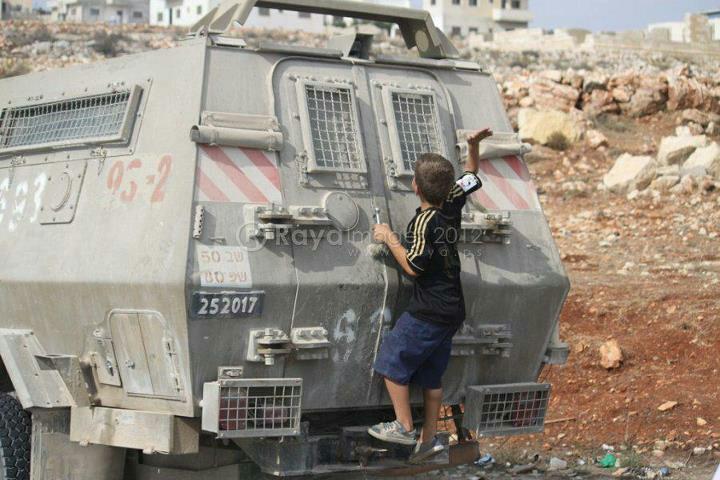
rushdi’s nephew and nariman’s son abu yazan (10) trying to prevent the military jeep from taking his 16 year old brother waed to military prison, 2.11.2012
waed had been released four days later after a few threats and some rough handling, it had been worrying, but he’d been ok. and only last friday, towards the end of the demo when people had gathered in nariman’s house, a tear gas projectile had broken the window on the veranda, which in turn fell down on ahed and nariman’s 12 year old niece marah. both had sustained light (though bandage-requiring) injuries.
so when this friday remained uneventful, it was a relief. by afternoon, we were still sitting in front of the tv with laptops or smart phones and not doing much. at one point, someone called and asked for the camera that nariman uses to document human rights violations in the village. apparently, there were clashes with soldiers on the hill behind her house. the thing is, any time soldiers or – rarely – settlers set food on the main road or the agricultural fields and hills of the village, the kids and youth thwart them off by throwing stones and there are clashes. sometimes, clashes are so frequent – and often brief, they might happen just when everyone sits down for a meal, and people will run out and come back a few minutes later, slightly out of breath, to resume dinner or lunch – that one gets used to them. i later asked and people couldn’t remember how the clashes on that saturday started, they just remember seeing soldiers on the hill and rushing there to thwart them off.
so when we heard about the clashes that afternoon, nariman couldn’t be bothered with going out to have a look and just handed over the camera. i also assumed they’d just be the usual kind of clashes and stayed on the couch. but after a while, people kept running into the house to take cover from the tear gas and the way they were trying to breath made me think that their reaction to the tear gas seemed stronger than usual. at one point, abu yazan was lying on the kitchen floor on his back, his eyes closed, trying to breath, and that kid has practically grown up with tear gas, he rarely reacts this strongly anymore (asia, an italian activist who is so close to nariman’s family that she’s basically the seventh family member, told me recently that when they took abu yazan to the doctor for an injury, they found a piece of metal from an earlier injury in his body that abu yazan never even thought to mention). so ahed and i decided to go have a look after all.
about 20 meters behind the house, a few people, mostly parents and young women, were standing on top of the hill. the boys and young men were scattered further down the hill, throwing stones at the soldiers. ahed and i didn’t even get a look because by the time we got to the top, the soldiers were shooting life-ammunition, rapid volley. we crouched down and immediately, we heard baha’a shout “rushdi is injured, guys, rushdi is injured!” later, when watching the video, we realized that abu yazan had been next to rushdi moments before rushdi was shot.
i remember someone telling rawan (a 17 year old young woman who and citizen journalist) to get up and film, that they wouldn’t shoot at her. i think she didn’t. i do remember that helmi (another citizen journalist from the village) took the camera from her and got up, visibly holding the camera, and immediately, there was a shot in his direction and he crouched back down for cover.
by this time, nariman must have heard that someone was hurt – she later said she didn’t realize it was her brother. she took the camera and ran down the hill towards the soldiers, shouting “i am b’tselem” (a volunteer with b’tselem camera project). they were still shooting, but no longer rapid-volley, and apparently not at her. i guess we must have stood up then. i remember jehad, nariman’s nephew and jiji’s son, telling me to go down. this was tough because jehad, a proud and courageous young man, was clearly worried about his uncle and wanted to go himself, but we all knew that as a young man, he’d probably get shot at or arrested.
so i walked down the hill instead. when a soldier pointed his rifle and shouted something, nariman shouted back “he’s her brother, she wants to see him”, so i stuck to that argument. (often in situations when soldiers invade a village or even a home and declare them “closed military zones”, they seem to be stuck in the thought that they are in some dangerous, high-profile military operation. palestinians usually deny this narrative and insist that they are, in fact, violently and absurdly interfering in mundane family- or community life).
about mid-hill, rushdi was lying on his back with a soldier’s rifle pointed at him, and nariman, her uncle naji and helmi (who had apparently walked down after nariman) were arguing with the soldiers to let us take rushdi and get him first aid. the soldiers were apparently sill intending to detaining rushdi.
i grabbed rushdi and leaned his upper body against me, trying to hold him in a way that would allow us to carry him as soon as someone took his feet. i had never met rushdi before – he was a police officer in birzeit and was often gone for the whole week; he never participated in the demos and people even say this was the first time he participated in clashes – but i continued to call him brother for show and asked him how he was. he told me that he couldn’t see. it looked like he had a wound on his forehead and i was worried that he got shot in the head. but it turned out that he probably got this injury when they dragged him several meters down the hill, trying to arrest him. i guess they didn’t get any further before nariman arrived. they must have been “rough” dragging him because when we arrived, half of the vest that he was wearing was missing. in the video, one can hear someone tell rushdi to get up, and he says he can’t.
from the moment i arrived, it was only seconds before helmi, i think, grabbed rushdi’s feet and just when we started to carry him up, nedal, rushdi’s younger cousin, was behind me with naji’s wife boshra, and nedal told me to let go. he heaved rushdi up on his shoulders ran up the hill.
when i arrived on the top, they had laid rushdi on the ground and were examining him. his youngest sister noora, his cousin and bilal’s wife manal and a few other women had run up, everyone out of breath, frantic and scared. i remember noora’s husband rami examining rushdi, and jehad standing over them and pushing everyone away to make room.
they put rushdi in the backseat of a car and nariman went with him to the hospital. rami wanted to go as well, but it was decided that he should stay put so that the soldiers wouldn’t stop the car unnecessarily.
the soldiers must have shot more tear gas at one point because i remember that after the car drove off, we all ran into nariman’s house and had trouble breathing. several just lay on the floor while people passed on the usual alcohol-soaked tissues to smell. i assume the tear gas they used was the usual kind, but that day, somehow, it seemed to burn more.
the rest of the evening was quiet. we heard that, in the car, rushdi repeatedly lost consciousness and that he threw up blood, if i remember correctly, but later he seemed ok and nariman and whoever else had gone to the hospital came back. i remember people seemed relieved and no longer worried. i was cleaning up in nariman’s kitchen and her 12 year old nephew ahmad was telling me a random about rushdi. i think it was even that night that we had a candle light vigil for gaza in the village.
sunday, 19.11. – rushdi seemed ok
the next morning, i went with nariman to ramallah. in the service (collective taxi), we somehow ended up talking about the habit of claiming pride in the martyrdom of someone. i remember saying that surely, no one would be glad if rushdi ended up a martyr. it was for argument’s sake, we were that not-worried that he could actually die.
we first went to the office of the pscc because, again, we were not worried, and it was too early for visiting hours, and then walked to ramallah hospital. nariman’s mother, older sister jiji and naji were already there with some others. rushdi was in an intensive care room, but he was conscious. visitors were not allowed into the room, but a staff member allowed family members to enter the room one by one and stand at some invisible barrier and talk to rushdi from a distance. naji and jiji insisted i go in as well, and because i didn’t want to alert the kind staff member to the fact that we were not all family, i did. i just waved at rushdi and smiled apologetically, knowing he probably had no idea who i was. i didn’t have my glasses on and couldn’t see his reaction either, so i went back out, feeling silly. then, the staff member allowed rushdi’s mother to go sit next to rushdi’s bed. she later said rushdi was complaining that he wanted a cigarette.
the atmosphere was light, with some laughter even, but the family was not told much. all they knew was that he was shot in the upper leg/hip from the back, that the bullet had caused some internal damage and that he seemed to be ok. i called dr. assem, one of the very few physicians who do more than just the routine and actually care for patients. although he does not work at ramallah hospital, he had talked to other doctors and made sure a friend of mine got proper care at the hospital before. i asked him if he would call someone at ramallah hospital and find out what rushdi’s situation was and gave him jiji’s number. in the evening, he went to visit rushdi and called jiji to tell her he seemed ok, but of course, he had not had access to any medical files or medical personnel either.
monday, 20.11.2012: from a day of protests to ramallah hospital
monday, 20.11.2012 was supposed to be a day of action against the ongoing attacks on gaza. in the morning, several people from the village went to an action where activists from all over the west bank cut a large hole in the electric fence that is part of the apartheid barrier near ofer military prison, and then tried to block a major road leading to an illegal settler colony. when soldiers/border police/whatnot dispersed the road block and there was fear of arrests, everyone who could crowded into any available car to get away. we were probably 10 in a 5-seat taxi, but when we saw saw one of mustafa’s brothers* and another young man from the village running, we worried that they would definitely be arrested if caught since it is primarily the young men who are the preferred target the popular target of the occupier. nariman asked the man in the front seat to let them cram with him in the front. i remember she said “please, sir, let this kid sit with you, he’s the brother of a martyr”.
on the way back to ramallah, nariman got a phone call. they said that rushdi was having difficulties breathing, so she went back to the hospital, but it still didn’t sound so worrying, so the rest of the nabi saleh group still went to the demo in manara. after a while, just when i couldn’t decide whether to go to the next protest in front of ofer military prison or back to the hospital, i got a call from naji. he sounded worried, he said that rushdi was really unwell and they didn’t know what was wrong. he wondered if dr. assem would be able to find out. i called dr. assem and he went to the hospital before his next appointment, but we just missed each other. he said he would try again in the evening.
when i arrived at the hospital, the atmosphere was very tense. a lot of people – from nabi saleh and other villages – were gathered outside and a nariman, bilal, naji and a few others were sitting and standing in the hallways of the floor where rushdi was. jonathan (an israeli activist who’s a very close friend of nariman’s) was there, and he had already arranged with physicians for human rights about transferring rushdi to (i think) hadassa hospital in jerusalem. the paper work was getting sorted but apparently, rushdi was now unstable and could not be moved. we had to wait (i think an hour or two) and see if he would stabilize in that time-frame.
it’s hard to describe the time, hours probably, in the hallway of the hospital. there was a mixture between fear/worry and thinking “come on, he’s going to be fine, he was joking yesterday”, it went from tension and worry to hope and lightness and back. there was a lot of frustration with the doctors and staff, we felt like we were just waiting while surely someone could have done something. ifat (another israeli acivist) explained that apparently they had indeed neglected to provide the necessary care for rushdi, but that now, they WERE actually doing what they could (authorize a transfer) but that at this point, he was currently too unstable.
more and more people had arrived. noora was there with her mother, her oldest brother shaker and his children, her brother shukri, jiji and her family, manal and rami’s younger brother nedal, bilal’s brother marwan, mustafa’s brothers, almost everyone i know from the village. at one point, aboud, one of their two brothers who live in jordan, arrived, he had left jordan when he heard that rushdi’s situation was suddenly more critical. aboud is only 2 or 3 years older than rushdi, and the two look alike.

rushdi’s brother aboud with his daughter. aboud lives in jordan. they say rushdi and aboud were very close. the last time aboud had seen rushdi and been in palestine was the year before, during mustafa’s funeral.
noora was thirsty but wouldn’t drink. jiji had already cooked, she had thought rushdi would get released that day and since she has an apartment in ramallah, she thought everyone would have lunch/dinner. i remember at one point, i was sitting with jiji’s daughters amani and samia and and we were discussing the nutritional values of white vs. dark bread of all things.
then, a doctor came and said that rushdi was stable, a huge relief. it was only a question of waiting for him to get transferred to jerusalem. since the occupation prevents palestinians who are registered as residents of the west bank from accessing “jerusalem” (which today includes a large chunk of the west bank) unless they have a special permit, it was decided that shukri should be the person to officially accompany rushdi, and that, as a jordanian citizen, aboud could follow them by car. dr. assem called me back and said that because rushdi’s condition was so precarious, we needed to make sure that rushdi gets transferred in a special uci ambulance and that there is specialized personnel that has permission to cross into “jerusalem” accompanying him. i worried that the hospital might not think of this or that the family would not notice in the excitement if they didn’t. i kept telling (and probably annoying) jonathan and whoever would listen. at one point, a group of police officers walked in energetically and then left again. they were rushdi’s colleagues.
then a few things happened. i guess because we were expecting things to get going, i was suddenly standing with a few others in front of a closed glass door that lead to a corridor in which we assumed rushdi’s room was. a staff member came out the door and demanded to talk to the “haj”, meaning rushdi’s father, but because the father had passed away years ago, it was decided that mahmoud – a respected relative – should go in. nariman had been standing right in front of the man when he came out, but it was decided that she should not be the one to talk to him. apparently, she had fought with the staff and doctors earlier. she later explained that they had waited for hours for a doctor to see rushdi, and all the while his condition had visibly deteriorated. he had been given several blood transfusions, but when the family pointed out that this must mean he had internal bleedings, the staff apparently failed to react adequately. nariman had grabbed one guy, perhaps this guy, at the collar and screamed at him to go get the doctor. she told me that at one point, rushdi had made a gesture, kind of waved her off, as if telling her not to bother any more, as if telling her it was too late. she said that it was this gesture, this watching-rushdi-grow-weaker and basically die in front of her eyes and not being able to do anything while she is used to fighting for so many things, that was eating her up.
right after mahmoud went inside with the staff member, two other staff members brought a kind of stretcher on wheels from another corridor and approached the glass door that we were waiting in front of. it wasn’t one of the regular beds, the way i remember it, it wasn’t cushioned at all. before they reached the glass door, the first staff member came out again and looked at them, then at us, and then told them “not yet”. they seemed awkward. something was off. i think all of us at the door felt that something was not right. the two staff members parked the stretcher in front of the glass door and left. we were confused and tried to see something through the glass door. and then… everyone behind us started screaming and crying (mahmoud must have come out another door and they saw it in his face).
that moment, the moment someone screamed and then everyone screamed and cried, there is something unreal about that moment, something has me stuck there. i keep thinking “if only that one moment hadn’t happened”. because every time i remember this day, i remember that before this, there was hope, and after this, it became true, rushdi died and his death has been a reality ever since.
all these people that i am used to seeing strong and calm in the face of all kinds of danger and pain, every one of them i saw crumble and cry and break down, everyone seemed to be leaning onto each other and crying and holding, and the rest is a blur.
there are faces and moments i remember clearly and other things i don’t remember at all. that monday night, i know we drove back to the village. nariman’s mother had collapsed at he hospital and needed an injection. nariman and a few others stayed behind and came home later. i don’t remember much else of that night, i know i called asia in italy so she wouldn’t find out through some activist post on the internet, i remember some faces crying, but nothing else. i don’t remember where i slept.
funeral
very early the next morning, the day of the funeral, nariman left with waed while most were still sleeping, they brought rushdi’s clothes to the morgue. if i remember correctly, nariman saw the body of her brother by herself.
i remember imm mustafa, mustafa’s mother, came early to noora and rami’s house stay with rushdi’s mother. “she needs me now” she said, and i was grateful that she seemed so strong in that moment. because i knew that she, too, still broke down in front of the laptop almost daily, watching the video of mustafa getting killed, trying to grab him off the screen, pleading with him to just walk away before they shoot him.
on the way to the funeral and back, i was in aboud’s car, with rushdi’s mother and imm mustafa, noora, ahed, shaker’s daughter nagham and her brother ahmad and someone else i think. everyone crammed into cars and we drove together to ramallah. we parked on irsal street where the procession would end later, and passed through manara on foot on the way to the hospital. a handful of people who we didn’t know were already waiting and started to chant and follow when they saw us. and then, at the hospital, the ritual, the carrying out of the body, the saluting of the police, the cameras, the politicians getting their pictures taken, the masses, the chanting, the crying, the mixture of family and friends and people who never even knew rushdi, the procession began. all the way to irsal street, thousands of people chanted and the family broke down and held each other in support. noora needed someone to hold her up and walk her the entire time. i remember after the honor ritual by the police in birzeit, when we came back to the village, aboud was so furious when when he saw the soldiers at the military tower at the entrance of the village already positioned and with their weapons ready that he wanted to get out, but someone stopped him.
the rest is a blur, the funeral at the mosque, speeches, people crying, people comforting each other, people breaking down and fainting and needing to see a doctor and getting tranquilizers and falling asleep while someone else stroked their hair, bursts of anger, the routine of the three days of mourning in noora and rami’s house, of making and pouring coffee, of offering dates and tissues, of washing dishes, of feeding children, of breakfasts, lunches and dinners that the women of the village brought every day and forced the family members to eat. of women sleeping on mattresses on the floor while others were still talking or crying and waking up the next morning for more of the same, of seeing people both break and begin to heal, of people having moments in which they held themselves together, even smiled, only to crumble again a little later, over and over again.
i have images stuck in my head of naji, bilal, marwan, rami, shaker and shukri, men who i have always seen so strong, crumble in pain. of jehad and his brother sami clinging to each other in tears. i see shaker’s 12 year old son ahmad crying at night in front his grandmother’s house where rushdi lived. i see hamada, bilal’s bad-ass 14 year old who doesn’t even flinch each time he is injured – bend over with his head in his hands. i see jiji’s face – that beautiful face that always seems to smile – distorted and collapsed. noora’s whirl-wind six year old son hisham trying to comfort his unseeing moments before they bring the body of his uncle into the house for the last time before the burial. amani in the hallway of noora’s house after the funeral, crumbled against the wall. marah, the evening of the funeral, crying front of the laptop in their house as she reads the last post that rushdi wrote on his facebook page, where he asked his mother not to cry for him when he is martyred.
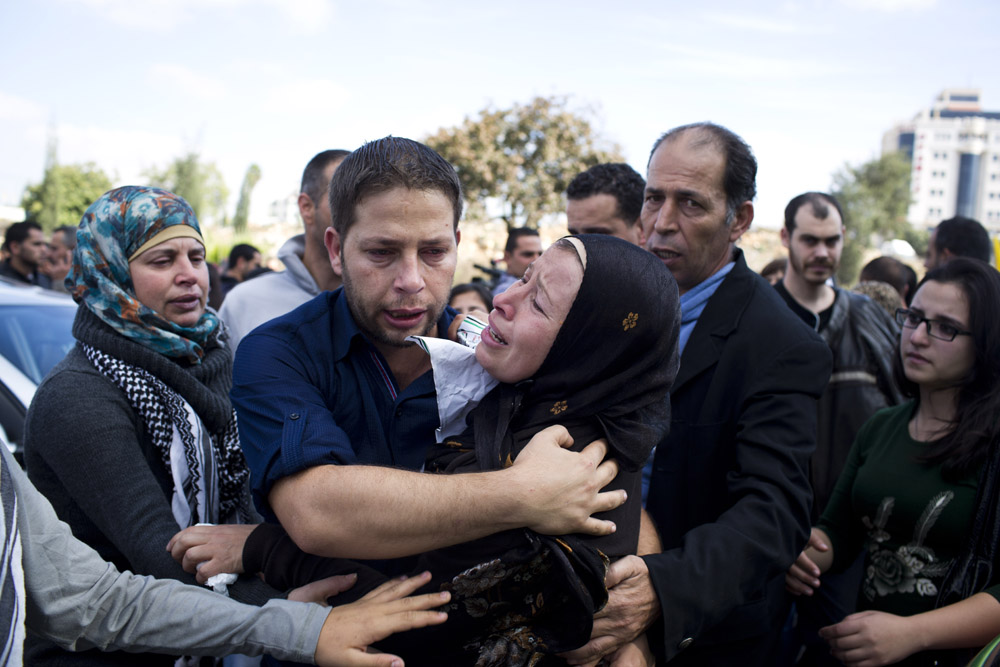
rushdi’s cousin manal, his siblings aboud, nariman and shukri, and activist and friend jonathan in the background (from r. to l.); photo: oren ziv
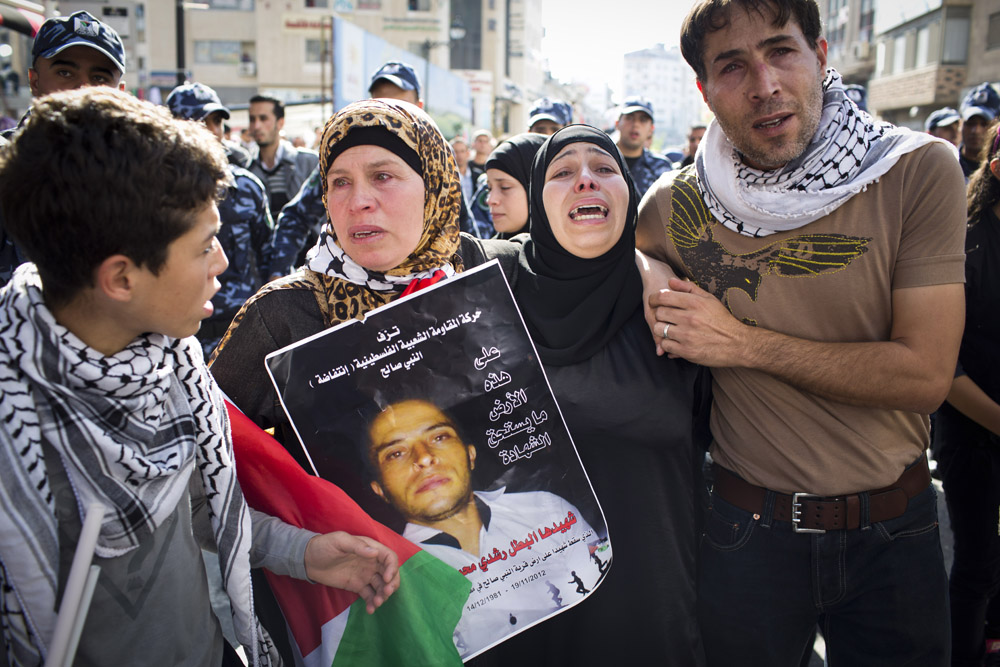
marwan holding his cousin and rushdi’s youngest sister noora, marwan’s sister nawal and nariman’s son waed (from r. to l.) ; photo: oren ziv
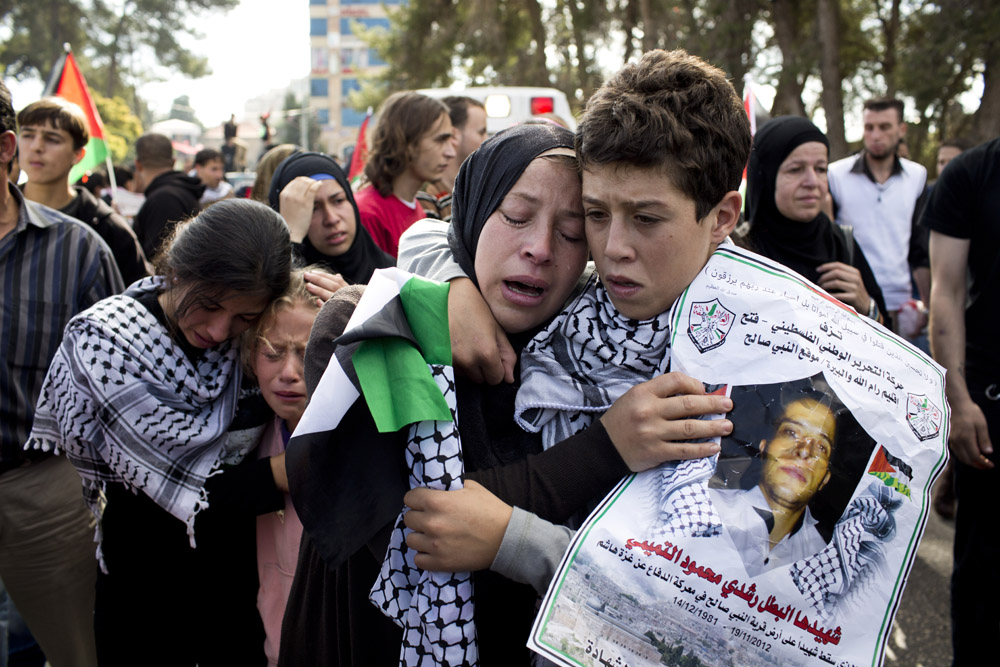
from r. to l.: waed comforting his mother and rushdi’s sister nariman. nariman’s son bassem was once again in military jail for his activism. in the background: jiji’s son sami, naji’s and boshra’s daughters bissan and ahed with shaker’s daughter nagham; photo: oren ziv
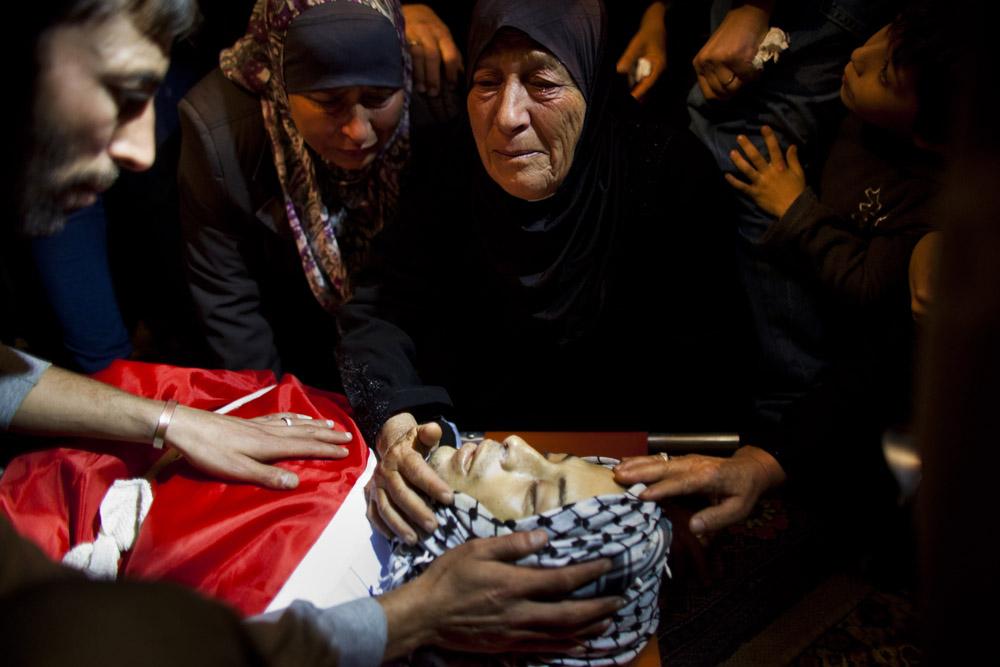
last touch and kiss: rami, jiji, rushdi’s mother and noora and rami’s son hisham (r. to l.); photo: oren ziv
living with rushdi’s death
rushdi was killed just before he turned 31. he was beautiful, he had hopes of remarrying, he missed his daughter ghazal so much that almost every picture on his laptop was of her, and he was loved so deeply it brings tears to my eyes. yes, his treatment at ramallah hospital was a nightmare, yes, they failed to recognize the life-threatening internal injury that cost his life (from what i understood, it was never totally clear to the family what exactly caused his death, only that part of the bullet ruptured an organ, i think the liver?), yes, they left him and his family unattended, and just thinking of that hospital has my hairs stand on end.
but let there be no doubt that rushdi was murdered by the military occupier. he was murdered by the life-bullet that was shot into his hip from behind. he was murdered by the reserve-soldiers that stepped out of line (because the unit that shot him was a reserve unit and there are rumors that their climbing up the hill was in disobedience/disregard of an order) and were then so stuck in their “military operation” that they delayed first aid. he was murdered by the apartheid road system and checkpoints for palestinians that make the trip from nabi saleh to ramallah take 30minutes, by the colonial system that prevents palestinian hospitals from acquiring advanced technology, treatment and expertise. and he was murdered by the military occupation of palestine that has drained the world of compassion for a palestinian life and that turns rushdi’s murder into just one more number in the statistics of the “middle east conflict”.
i’m listing words that do not convey something that feels like too much. in the days and months since that moment when everyone started to scream and cry, rushdi’s family and loved once have been in pain, and again and again, one can tell that one or the other is obviously struggling to cope. nariman still seems like an incredibly strong and courageous person, but sometimes she says that she doesn’t feel strong, that this has broken her. she has days in which she is in tears and runs out at night to cry at the tomb. noora has days during which she feels too tired to do anything, in which she is too numb. shaher, the second oldest brother has been stuck in jordan the whole time because something about his visa or passport situation prevents him from visiting palestine. he was unable to mourn with his family, unable to see the body of his youngest brother, unable to hold his mother or be held up by one of his brothers when he breaks down. i can’t imagine that. i keep thinking of shaher going through this in jordan and it hurts. i think of aboud, of the pain in his face, of him having arrived only to see the corpse of his brother who looks like his twin, of his visible desire to protect his mother and sisters from any kind of pain, and i am humbled. i think of bassem who was once again in a cell in military prison when news of the murder of yet another loved one reached him. again, he went through the worry of whether rushdi would pull through alone, he mourned alone and he was not able to be there for his wife and children who had just lost their brother and uncle. bassem told me once that when news of mustafa reached him the last time he was in prison, he at first only heard that someone was critically injured in the village, and his mind scanned everyone he loves. then they narrowed it down, “a man”, relief and more worry, then “a young man”, then “mustafa” and the next morning that he died. that time, he focused on comforting mustafa’s 20 year old brother odai who was only released from military prison after the funeral, too late for goodbye. now this, unable comfort his wife and children when he knows they are breaking, mere weeks after his own mother passed away.
i am also in awe of how this family heals together, holds together, celebrates life together whenever they can, and i a grateful that they even included others and me in this togetherness of that heals.
four days after rushdi’s funeral, shaher recorded a video in which he plays the oud and sings out his pain, and his family in nabi saleh sat and cried watching it again and again. throughout the year, he made a few more and just last week, he made one about rushdi and mustafa together.
aboud regularly creates compilations of music and pictures about rushdi, writes thoughts and poems in his memory and shares it with his family in palestine.
rushdi’s ex-wife now allows for his daughter ghazal to spend much more time with his family in the village and for her to hear and learn about the father that she hadn’t seen for month before his death.
a few weeks after rushdi’s death, someone found a picture of rushdi and mustafa – who were said to have been best friends – taken on the day of rushdi’s engagement. zeyad, mustafa’s brother, had a huge copy made and gave it rushdi’s mother as a present. the framed picture now covers most of a wall in her house where rushdi used to live. and while noora at first kept rushdi’s room locked, preventing anyone from touching the mess that he had last made, changing the lingering smell of his deodorant and his cigarettes, of moving the clothes that were still on the bed, shaker has eventually moved his family into that part of the house to live with their mother. his daughter nagham now sleeps in rushdi’s room.
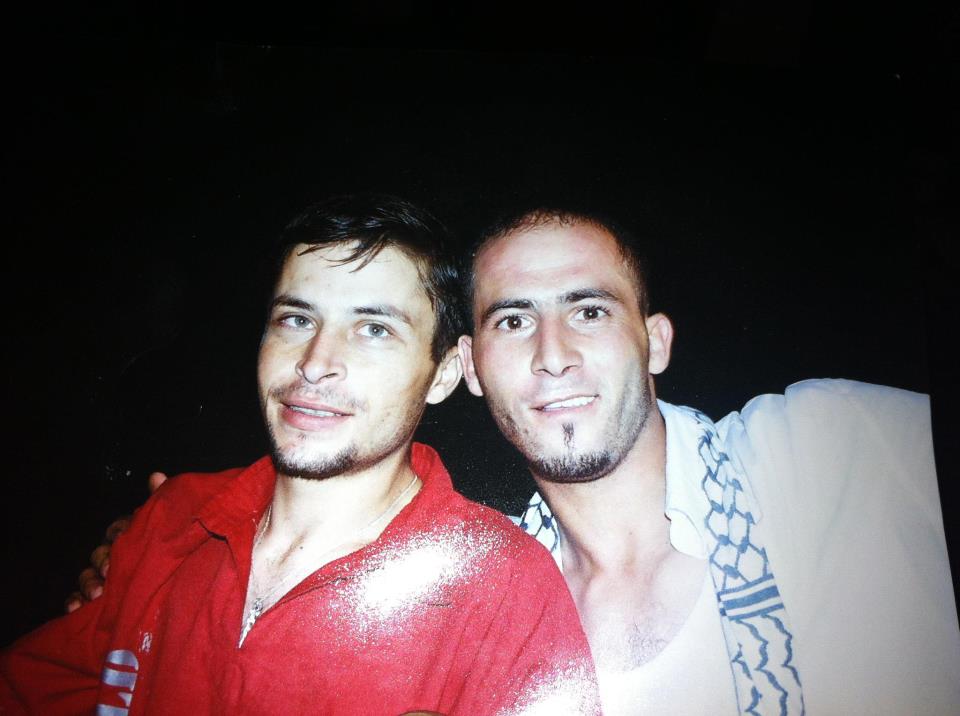
martyrs rushdi and mustafa at rushdi’s engagement; after rushdi’s death, someone found the picture and mustafa’s brother zeyad had a huge copy made for rushdi’s mother
the tamimis of nabi saleh contiue to protest against the colonizers and still clash with soldiers any time they enter their village. this friday, the villagers carried rushdi’s pictures during the demonstration.
to borrow rafeef ziadeh’s words where mine fail me, in the aftermath of rushdi’s murder, his family did and does “teach life, sir“. they do. and today rushdi is so present that i often can’t understand that he’s dead.
رشدت أللح يرحمك أخوي
* just in case, disclaimer to any occupation agent: this is not to be construed to indicate that any person mentioned here was actually involved or could offer information.

